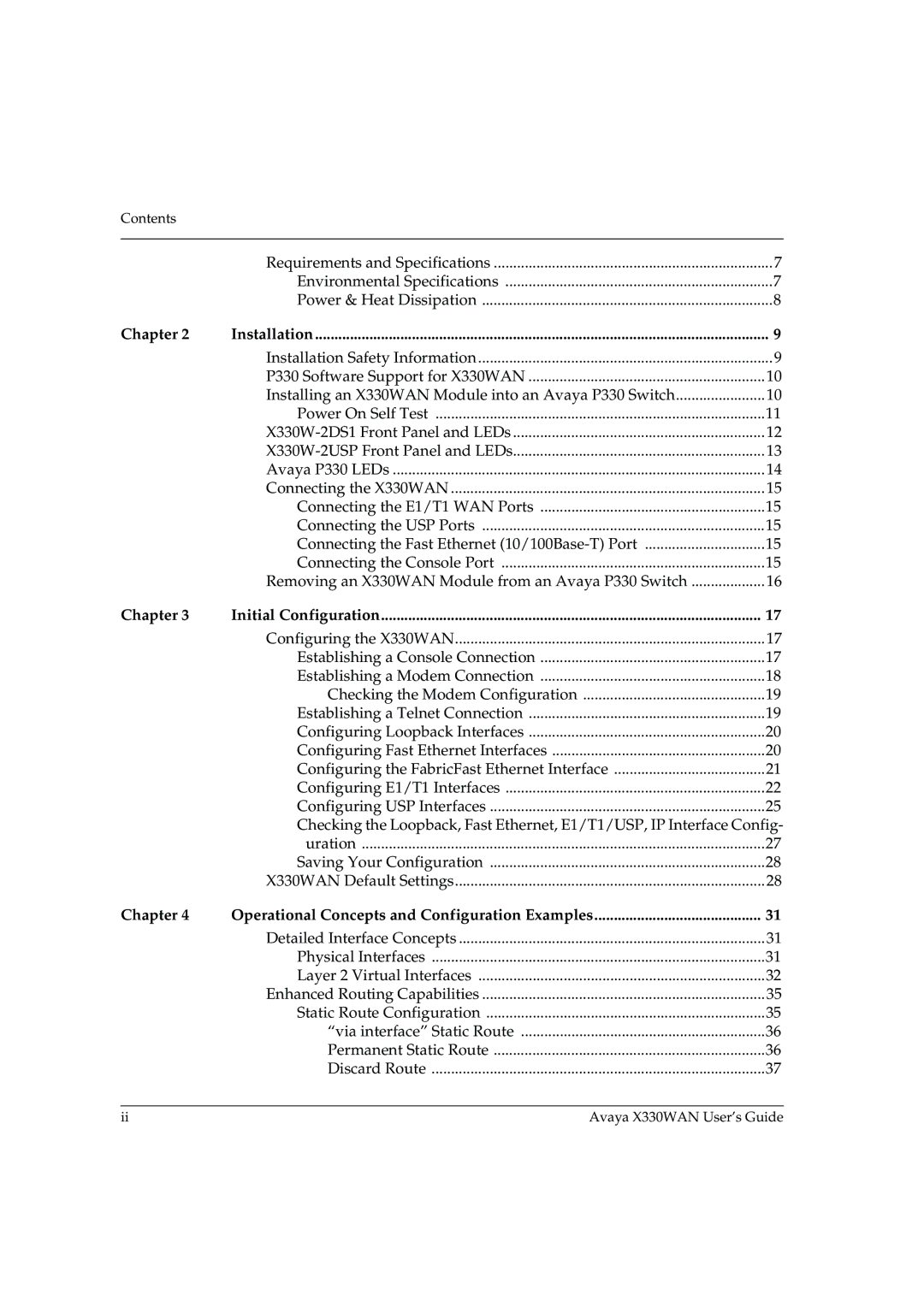
Contents
| Requirements and Specifications | 7 |
| Environmental Specifications | 7 |
| Power & Heat Dissipation | 8 |
Chapter 2 | Installation | 9 |
| Installation Safety Information | 9 |
| P330 Software Support for X330WAN | 10 |
| Installing an X330WAN Module into an Avaya P330 Switch | 10 |
| Power On Self Test | 11 |
| 12 | |
| 13 | |
| Avaya P330 LEDs | 14 |
| Connecting the X330WAN | 15 |
| Connecting the E1/T1 WAN Ports | 15 |
| Connecting the USP Ports | 15 |
| Connecting the Fast Ethernet | 15 |
| Connecting the Console Port | 15 |
| Removing an X330WAN Module from an Avaya P330 Switch | 16 |
Chapter 3 | Initial Configuration | 17 |
| Configuring the X330WAN | 17 |
| Establishing a Console Connection | 17 |
| Establishing a Modem Connection | 18 |
| Checking the Modem Configuration | 19 |
| Establishing a Telnet Connection | 19 |
| Configuring Loopback Interfaces | 20 |
| Configuring Fast Ethernet Interfaces | 20 |
| Configuring the FabricFast Ethernet Interface | 21 |
| Configuring E1/T1 Interfaces | 22 |
| Configuring USP Interfaces | 25 |
| Checking the Loopback, Fast Ethernet, E1/T1/USP, IP Interface Config- | |
| uration | 27 |
| Saving Your Configuration | 28 |
| X330WAN Default Settings | 28 |
Chapter 4 | Operational Concepts and Configuration Examples | 31 |
| Detailed Interface Concepts | 31 |
| Physical Interfaces | 31 |
| Layer 2 Virtual Interfaces | 32 |
| Enhanced Routing Capabilities | 35 |
| Static Route Configuration | 35 |
| “via interface” Static Route | 36 |
| Permanent Static Route | 36 |
| Discard Route | 37 |
ii | Avaya X330WAN User’s Guide |
